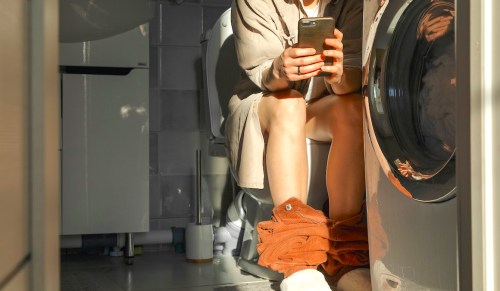Everyone has their special skills in life. Maybe you know how to cook an egg perfectly or remember the lyrics of every song you heard before the age of 10. And if you’ve noticed that you’re really good at holding your pee during long road trips or Zoom meetings that never seem to end, urologist Arnold Sholder, MD, co-founder and Advisory Board Member of Moonstone Nutrition, says that your, *ahem*, gift could be due to a combination of nurture and nature.
Experts in This Article
urologist and chairman of the board/co-founder of Moonstone Nutrition
“Compared to other organs in the body, the bladder’s function is quite simple: It stores urine and empties urine,” says Dr. Sholder. The main job of the urinary system as a whole is to “filter blood and create urine as a waste by-product,” according to Johns Hopkins Medicine. Your kidneys, renal pelvis, ureters, bladder, and urethra all help fulfill this purpose — but Dr. Sholder says that the qualities of your particular bladder will determine how good you are at delaying the call of nature.
“Like the rest of our body, there is great variation in our bladder‘s ability to store urine. These differences are related to bladder size, bladder wall thickness, and variations in neurologic influences. These distinct features allow some people to hold their urine longer than others,” says Dr. Sholder. And, generally speaking, this can be sort of a superpower. “Being good at holding our urine allows us to remain continent and get to a bathroom in time to prevent leakage,” he explains. In other words: You are a special snowflake… and so is your bladder.
Meanwhile, on the nurture side, many “life” factors will determine how much time elapses between one bathroom trip and the next. “These [factors] include how well hydrated you are, how much fluid you’re taking in, what type of fluids you are drinking, and the particular aspects of your bladder function,” says Dr. Sholder. “Drinking coffee and alcohol will increase the amount of urine you produce and, therefore, the frequency of urination.” He adds that, if you are well hydrated, you should need to be every two to three hours. However, if you’re nervous or anxious, you may feel the need to go more often. Additionally, come that time of the month, you might need to pee more on your period.
“Like the rest of our body, there is great variation in our bladder’s ability to store urine.” —Arnold Sholder, MD, urologist
On the other hand, if you’re not drinking a lot of fluids, dehydration could prevent you from urinating for four to six hours, says Dr. Sholder. If this is you, your ability to hold your pee isn’t so much a superpower as it is a health risk—and it’s time to prioritize your daily intake of H2O. “The human body is about 60 percent water and needs to be continually hydrated throughout the day in order to optimally function,” Amy Gorin, RDN, a plant-based registered dietitian in the New York City area, previously told Well+Good. “Hydration helps with everything from healthy digestion to helping to prevent headaches and UTIs.”
With all of this in mind, you don’t want to make a habit of holding your pee just because you’re watching a pivotal episode of Stranger Things or wearing a onesie that makes it so hard to go. “Holding our urine too long can lead to urinary problems. These include urinary leakage, increase risk of urine infections, and bladder weakness over time. Some jobs do require holding your urine for excessive periods such as truck drivers, nurses, and teachers,” says Dr. Sholder. Instead, keep it 100 and just go when you need to, everyone.
A good general rule, according to Dr. Sholder? “Many people complain of urinating too frequently during the daytime but then do not have to get up at night to urinate,” he says. “This usually indicates a fairly normal functioning bladder with a good bladder capacity.”
Sign Up for Our Daily Newsletter
Get all the latest in wellness, trends, food, fitness, beauty, and more delivered right to your inbox.
Got it, you've been added to our email list.











